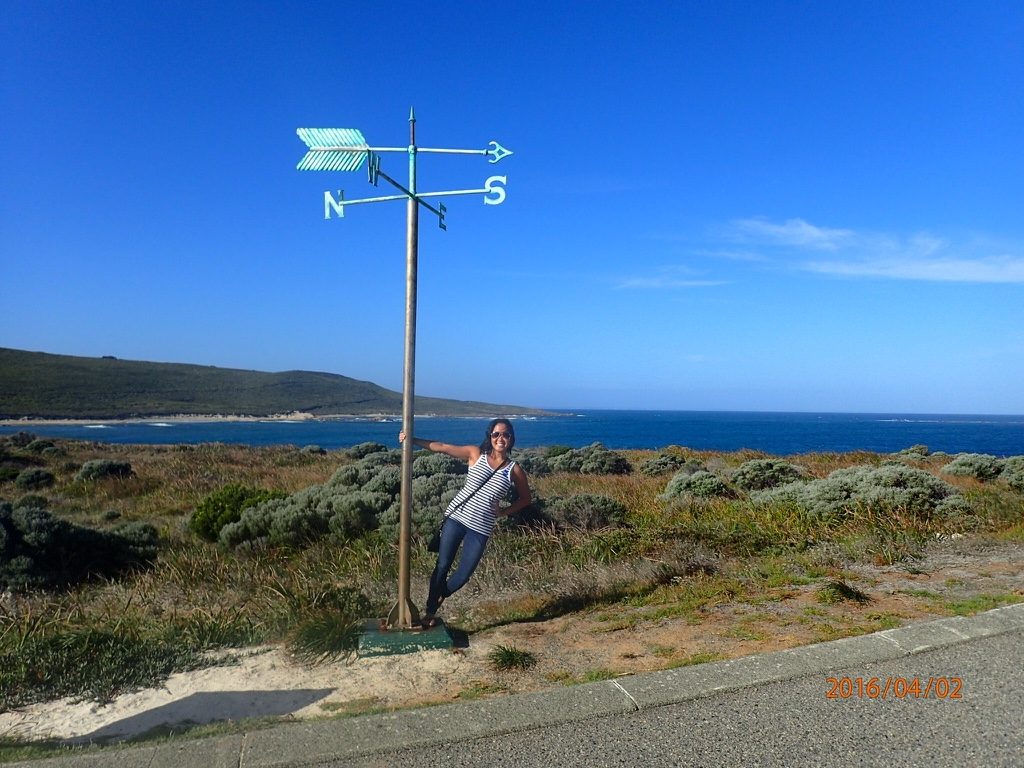Thank you to Tori Frost, an SLP in Australia for contributing to this piece and sharing her experience.
Are you an SLP who wants to work in Australia?
My Backstory:
How did I come to be in Oz after graduating from grad school? I didn’t have a job lined up right away, so I decided it was most logical to go to Italy (Sicily) and work as an au pair for about five weeks. Toward the end of my time in Italy, I got an e-mail about an acute care job that I had previously interviewed for and didn’t get – but they now had another full-time opening and wanted to see if I was interested. I thought it was too good to be true, but that’s how I began my career as a speechie. I started at the hospital shortly after coming back from Italy.
Fast forward about four years later and one of my best friends from grad school was getting married in Alaska. Alaska was never one of my must-visit places, but I had the most amazing time and couldn’t get over how gorgeous it was there. I had gone on some other vacations since starting my job, but when I got back from Alaska, I just knew I had to see more of the world.
Why SLP in Australia?

I’d always wanted to visit Australia, so started looking into working as an au pair here so I could do more than just a short vacation and not incur insane travel expenses. At first, I told myself I was too old (28) to quit my full-time SLP job and move to another country to au pair. But I decided to go for it and soon enough had a flight to Australia booked. I would do some traveling for a couple of weeks and then fly to Darwin where the family was that I would au pair for. I planned on doing the au pair gig from mid-January through the beginning of May, at which time I would go back to the US to be at my friend’s wedding. Then I might look into doing travel therapy in the US or look for another permanent job. But…as they do, plans changed. I fell in love with Australia and wasn’t ready to go home for good.
With encouragement from my friends and a few jokes about how I should book a roundtrip flight when going back for the wedding, I looked into getting certified as a SLP in Australia. But I had a million questions: How do I go about getting certified? Is it worth it? How easy or difficult might it be for me to find a job? So, I went onto ASHA’s member directory and searched for speechies in Australia and just started e-mailing them. One of them, Mary, was a speechie from the US who had been working in Australia. She gave me her number and happily answered all of my questions (for which I am forever grateful!). She told me about the process of getting certified, that she thought I shouldn’t have too much trouble finding a job, etc.

So after getting certified, I began job hunting. One of the other speechies I had e-mailed from the ASHA website let me know about the Speech Pathology Australia branch meeting in Darwin coming up. I went to the meeting not knowing what to expect – literally the next day, she e-mailed me about a 10-12 week locum acute care position at Royal Darwin Hospital (that wasn’t posted on any of the sites I was looking on). So that’s how I landed my first Aussie speech job and ended up booking that roundtrip flight after all. As my weeks at RDH were ending, I started applying all over Australia. And that’s how I ended up road tripping and moving to Sydney soon after my position in Darwin ended. I took a part-time job at a private hospital and then started applying to other places to supplement. And decided I still wouldn’t want to leave at the end of the year, so applied for the Skilled Independent Visa (189) – I originally came out on the Work and Holiday Visa (462).
The process of being an SLP in Australia
And here I am with my 189 visa approved and now considered a permanent resident of Australia.
Was it cheap? No
Was it the easiest thing I’ve ever done? No.
Do I miss my friends and family at home? Of course.
Was it worth it? No doubt about it!

Some Hopefully Helpful Tips for Living/Working in Oz
Visa Options
Work and Holiday Visa (462)
-
- Cannot yet be 31 years of age and no dependent child with you
- $440 AUD
- Good for 12 months, can work in Australia, generally for up to 6 months with one employer
- If you have completed specified subclass 462 work in northern Australia in tourism and hospitality or agriculture, forestry and fishing you can apply for a second Work and Holiday visa **Mine was granted within a day
Skilled Independent Visa (189)
-
-
-
- Must not yet be 50 years of age, must qualify based on a “points” test
- $3600 AUD (may have additional costs as well for English test, medical exam, etc.)
- Allows you to live and work in Australia as a permanent resident
- **Once I had enough points to apply, I sent in an application in early November 2016, ended up having to send in some more documents, and was granted my visa in February 2017 (until granted, I was on a Bridging Visa which allows you to stay and work until a decision is made)
-
-
Temporary Work (Skilled) Visa (457)
-
-
- Must be sponsored by an employer and be employed full-time by one employer
- Can work in Australia for up to four years
- Not sure how easy/difficult this is for a speechie to find an employer to sponsor them
-
Partner Visa (820 and 801)
-
- If you are the spouse or de facto partner of an Australian citizen, an Australian permanent resident, or an eligible New Zealand citizen
Licensing/Certification
-
- Speech Pathology Australia Overseas Qualifications
- If you are an ASHA member, there is a Mutual Recognition Agreement (MRA) Application, which costs $700 AUD – this is basically for SPA to do a skills assessment
- This is NOT membership to Speech Pathology Australia
- Certified practicing membership to SPA $535 AUD annual fee (depends on your employer if you need to have this or not)
- Speech Pathology Australia Overseas Qualifications
Jobs
- Recruitment agencies (Global Health Source, Reed Global, Sugarman International, Aussie Locums, etc.)
- Search engines (au.indeed.com, au.jora.com, seek.com.au, etc.)
- Search on each state’s government website
- Other things to consider
- Money
- Conversion rate (USD is worth more than the AUD
- In general, cost of living is higher
- If you plan on having a car, you’ll be driving on the opposite side of the road!
- Housing
- Rent is generally listed as a price per week
- Flatmates.com.au, Gumtree (similar to Craigslist), www.realestate.com.au, Facebook groups, etc.
- Money
If you have any specific questions, please feel free to e-mail me at toribfrost@gmail.com

About Tori:
Tori Frost, M.S., CCC-SLP, CPSP is a speech-language pathologist who is currently living and working in Australia. She received her Bachelor’s Degree in Communicative Sciences and Disorders from Michigan State University in 2009 and received her Master’s Degree from the University of Redlands in California in 2011. Tori worked for a little over four years in acute care in the US before moving to Australia. She currently works part-time in acute care at a private hospital and as a contractor for a private practice in the Sydney area/suburbs. In her spare time, you might find her running, working out, adventuring, eating avocados, drinking espresso martinis, doing handstands, or planning her next trip.
Free E-Book & Newsletter
Subscribe to get our latest content and stay up to date by email

Thank you so much for sharing this information! It provided all the inforation I have been searching for.
After visiting Australia for the first time last year, I fell in love with Melbourne and have been considering working over there. I’m flying back at the beginning of June. I will emailing you for more questions. I’m so excited!
That’s awesome that you want to work in Australia! Good luck!!!
Hi! I am a Speech and Language therapist in the UK and I am so pleased I have found your website! I have been looking into working in Australia as a Speech Pathologist but I have been finding it difficult to know how to go about it. I am currently registered with the RCSLT who are also part of the MRA so is it right that only need to apply for the MRA and a visa to be able to work as a Speech Pathologist in Australia? How long did you find it took for the MRA to come through? And do you find most jobs want you to be a member of SPA as well?
Thanks for the message Hannah! That is so exciting that you are looking at working in Australia. I don’t personally know the answers to your questions, but I will let the guest blogger who wrote this post, Tori, know that there are questions here. 🙂